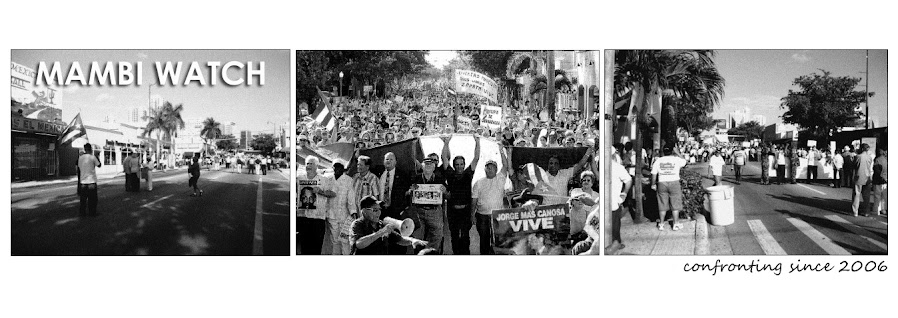 The Center for International Policy (CIP), and other co-sponsors, yesterday held a conference on US/Cuba relations. The meeting was titled: "Imperatives for a New Cuba Policy." Among the guests yesterday were well-known opponents of current US policy towards Cuba: Wayne Smith, Joe Garcia, Phil Peters, Alfredo Duran, Robert Muse, and others.
The Center for International Policy (CIP), and other co-sponsors, yesterday held a conference on US/Cuba relations. The meeting was titled: "Imperatives for a New Cuba Policy." Among the guests yesterday were well-known opponents of current US policy towards Cuba: Wayne Smith, Joe Garcia, Phil Peters, Alfredo Duran, Robert Muse, and others.A summary of the event should be released soon, and will be linked and reviewed here, but the CIP today offers us a glimpse. It's not too optimistic it seems. Robert Muse, lawyer specializing on US/Cuba laws and long-time opponent of US policy, puts it bluntly:
"PAC contributions have ensured that Congress is now at stalemate over Cuba policy... Therefore, if relations are ever to be normalized between the United States and Cuba, the lead must come from a future American president. By reverting to the Clinton era policy of relaxation of specific elements of the embargo in response to positive developments in Cuba – for example economic reforms – he or she will have taken the first confidence-building steps toward a normalization of relations with Cuba. If such leadership is demonstrated by a future White House, Congress may be expected to ratify its results. The alternative is permanent estrangement between the U.S. and Cuba, regardless of who governs the latter."
US-CUBA DEMOCRACY PAC
The PAC contributions that Muse speaks of is most likely a reference to the US-Cuba Democracy PAC (USCD PAC), which recently celebrated their defeat of important amendments presented by long-time US embargo opponents in the House. The recent USCD PAC newsletter called it a "historic victory." Founded in 2003 (as a response to relaxed restrictions on agricultural trade with Cuba in 2000), the USCD PAC has progressively grown in wealth and influence on Capitol Hill. According to the Center for Responsive Politics, the contributions for the USCD PAC since 2004 has steadily risen from $580,245, to $828,204 in 2006. A recent article in The Hill by Ian Swanson, described the further successes of this "relatively small special interest group."
Swanson's article focuses on how freshman Democrats in the House recently voted on an amendment by long-time US embargo opponent Rep. Charles Rangel. The amendment was aimed "to remove certain banking restrictions related to Cuba's payment for agricultural purchases from U.S. producers." It failed with a vote of 182 versus 245. Swanson reports: "Fifty-two of the 66 Democrats who voted against Rangel’s amendment have received one or more contributions from the U.S.-Cuba Democracy PAC since the beginning of the 2007-2008 cycle, according to Federal Election Commission filings... [USCD PAC] has given $56,000 to 22 Democratic freshmen this year, and 17 of those freshmen voted against Rangel’s amendment."
While those numbers average to approximately $2,500 for every Democratic freshman, there are exceptions in general contributions. Swanson points to Rep. James Clyburn from South Carolina who received $10,000 from USCD PAC and voted against the Rangel amendment, but "who has previously voted to lift the Cuban trade embargo" at other times. Back in 2001, Clyburn seemed to be very optimistic about relaxed agricultural trade with Cuba publicly stating:
"South Carolina should take this time to prepare for what I hope will finally be the opening of a new market for our State's farmers and pharmaceutical companies. This State is ideally situated for trading with Cuba, because products produced here are within a day's travel to the island that is just 90 miles off the coast of Florida."
Records from the 2006 election cycle show that USCD PAC rarely gives $10,000 contributions to House Reps; only two received $10,000, one received $9,000, and four received $8,000 from a total of 166 candidate contributions.
Swanson quotes Rep. Charles Rangel saying he "was blindsided." But, one should not blame USCD PAC alone for the defeat. There are Democrats inside who have "been very active this year on Cuba-related issues."
[Part 2]

No comments:
Post a Comment